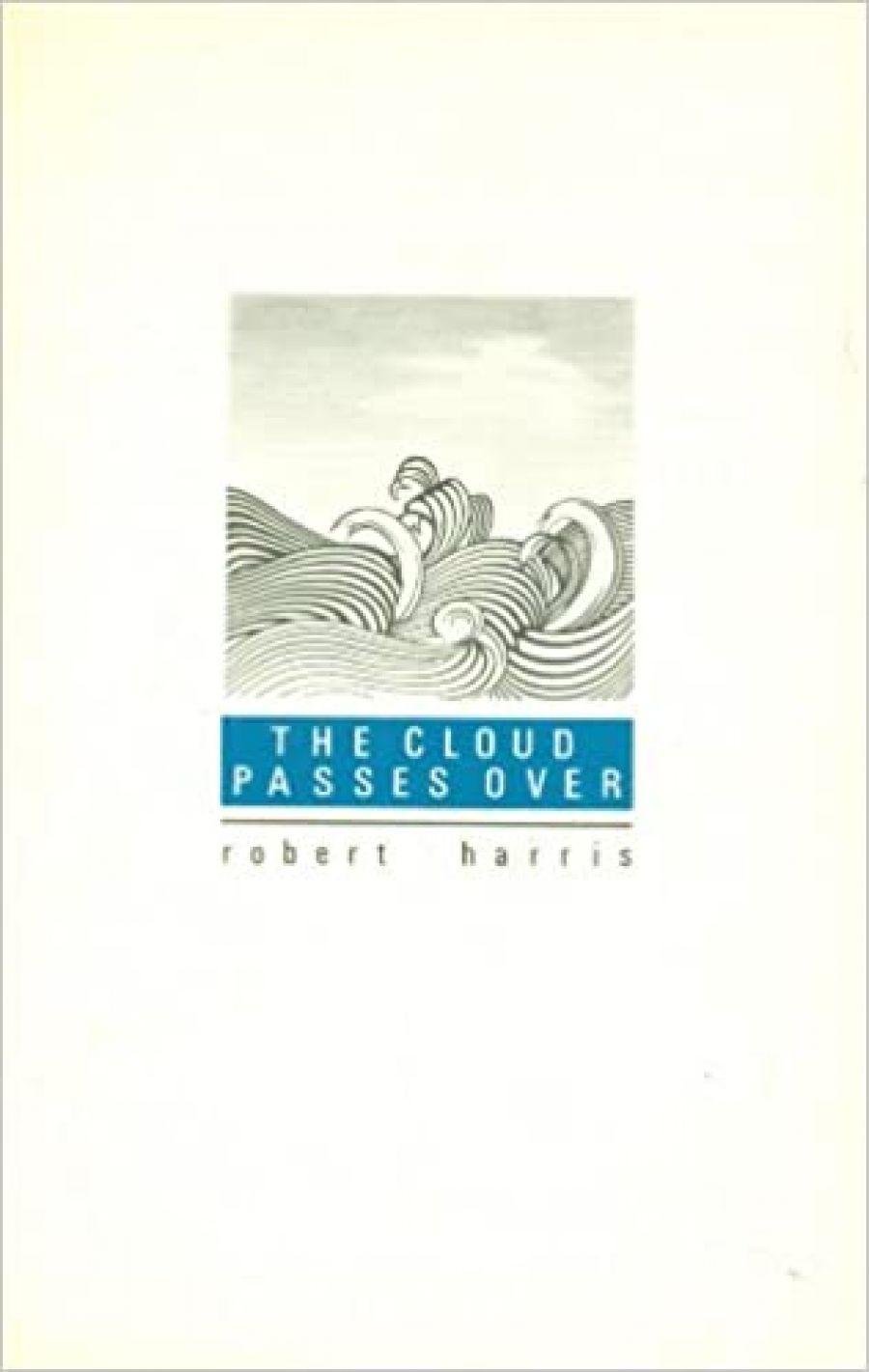
- Free Article: No
- Contents Category: Poetry
- Review Article: Yes
- Online Only: No
- Custom Highlight Text:
This book signals a dramatic shift in the poetry of Robert Harris. His three previous books – Localities (1973), Translations from the Albatross (1976), The Abandoned (1979) – were born out of an intense and self-propelling passion for the glitter and the glow of words, the power they have to transform reality through a kind of internal poetic combustion. This was a poetry laden with abstraction and with quasisurrealist imagery, heavily influenced by the French symbolists, by American poets like Robert Duncan, and in particular by the Australian poet Robert Adamson. Some of it stands up pretty well, though there was always the tendency for the verse to veer out of control, overblown and unfocused in the headiness of its phrasing.
- Book 1 Title: The Cloud Passes Over
- Book 1 Biblio: Angus & Robertson, 68 pp $9.95 pb
So what has happened in the intervening years? Well, the poetry in The Cloud Passes Over is probably a little stronger and a little duller than it was in the early days. Decisively, the almost religious fervour for a language of plenitude and flagrant possibility in a fallen world has been translated into a passion for Christ himself. Harris has undergone religious conversion and the poems speak of this right from the outset. What is more, the influence of Adamson has been tempered by an influence from a most unexpected quarter – the shadow of Les A. Murray bulks large over these pages and, apart from his own by no means dismissible talents as a writer, Harris shows that an alliance between Adamson and Murray is perhaps not such an unholy one after all. Harris’s language has become earthier, more specific. He seems less interested in trying to conjure experience than he does in trying to pin it down. He has become more descriptive. The kind of exhilarated inner-urban abstraction to be found in Translations from the Albatross:
a girl wears a papier maché mask
and tinsel stars down Brunswick street
a bird a lumbering waggon of sky
– this ghost that can go with aphasiacs
rendering tithes
without feeling panic
arise, like a kite
Trout leap out of the river, command
The night.
gives way to pastoral calm: in these lines (from the new book’s title poem, in fact) Harris even manages to get a word in on God’s behalf for the rural lobby:
some nights
the Lord God of waters
moves down the freshwater,
the estuary, rivers
veiled in darkness.
In silence He inspects
the snags
where the bank drops away,
examining every rotting trunk,
every hole where the fish sleep.
He sets aside mullet and trout
for koori people,
for dairymen mourning
under the quota system.
Still, old habits die hard, and some of Harris’s fondness for a poetry of fragrant excess carries over into this new book. The trouble is that what looked like experimental panache in the early work can tend to read as merely undisciplined in this steadier, more self-assured form. It is not the case that Harris is ever strident in celebrating his own conversion or that he has lost sight of poetry in confronting the face of God; but his occasional loss of grip on his new technique can throw the book slightly out of kilter with its own apparent aspirations and the poetry becomes less convincing than the conviction which generated it. It was Walter Benjamin who argued, in a famous essay on translation, that the voice of God becomes authentic only as the language it is couched in moves further and further away from mere meaning. In these terms Harris’s early work is the more divinely inspired, though perhaps this new book has taught me to read it that way. These lines are from Translations from the Albatross:
Whose streets know your name,
Whose factory stacks and rains spell it
out
In the language of the serenity we seek
Where cygnets dissolve in a dazzle of
light
And one black swan is riding like
An eyelid on the glittering sea
And you will find Paradise everywhere
In the shadow of air.


Comments powered by CComment